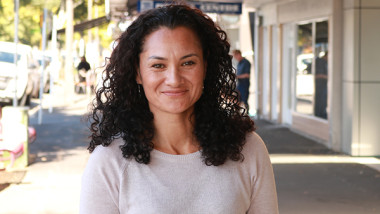
Voting is open for the 2025 local elections, check out candidate profiles and videos.

 Mali Ahipene | Pou Tuhono
Mali Ahipene | Pou Tuhono
Not long after I joined Waikato Regional Council, something remarkable happened. In 2012, the council voted to create two Māori constituencies – making us the first in the country to do so under the Local Electoral Act. It was a bold move that helped make our local democracy more inclusive by ensuring Māori voices could be heard at the decision-making table.
Since then, Māori constituencies have been in place for four election cycles. Over that time, our Māori councillors have made a huge impact. They’ve helped guide decisions with a strong Māori perspective, strengthened the council’s understanding of te ao Māori, and played a key role in shaping policies that benefit both iwi and the wider community.
We’re not alone. Across the country, more and more councils are establishing Māori wards and constituencies. In the last election, the number increased from just a few to over 30 – a real sign of change. But progress like this doesn’t happen on its own. It takes commitment, partnership, and a willingness to work together in new ways.
At Waikato Regional Council, we’ve been working alongside iwi Māori – not just because we’re required to, but because we know we’re stronger together. Many of these partnerships are the result of Treaty settlements, which are legally binding agreements between the Crown and iwi. These settlements help put right the wrongs of the past, but they also look to the future – creating long-term relationships based on trust, respect and shared responsibility.
One of the most important examples is our partnership with the River Iwi – Waikato-Tainui, Raukawa, Te Arawa River Iwi Trust, Ngāti Tūwharetoa and Maniapoto. Together, we work to uphold Te Ture Whaimana o Te Awa o Waikato – the Vision and Strategy for the Waikato River. This unique document sets out a powerful goal: to restore and protect the health and wellbeing of the Waikato River for future generations. It guides our decisions, shapes our priorities, and reflects the deep connection between people and place.
Working with iwi hasn’t always been easy. Like any relationship, it’s taken time to build trust and find the right balance. But we’ve come a long way. Where once these relationships were seen as compliance requirements, they are now recognised as vital partnerships that lead to better outcomes – for the environment, for communities, and for the region as a whole.
Looking ahead, there’s still more to do. Upcoming Treaty settlements – like the Pare Hauraki Collective Settlement and the outstanding Waikato-Tainui claim for the west coast harbours – will bring new responsibilities and opportunities for partnership. These will shape how we work together for years to come.
By walking alongside each other, sharing knowledge and honouring our commitments, we can create a future where all voices are heard – and where the wellbeing of people and the environment is at the heart of every decision.
Get ready to participate in local elections 2025 for the Waikato region.